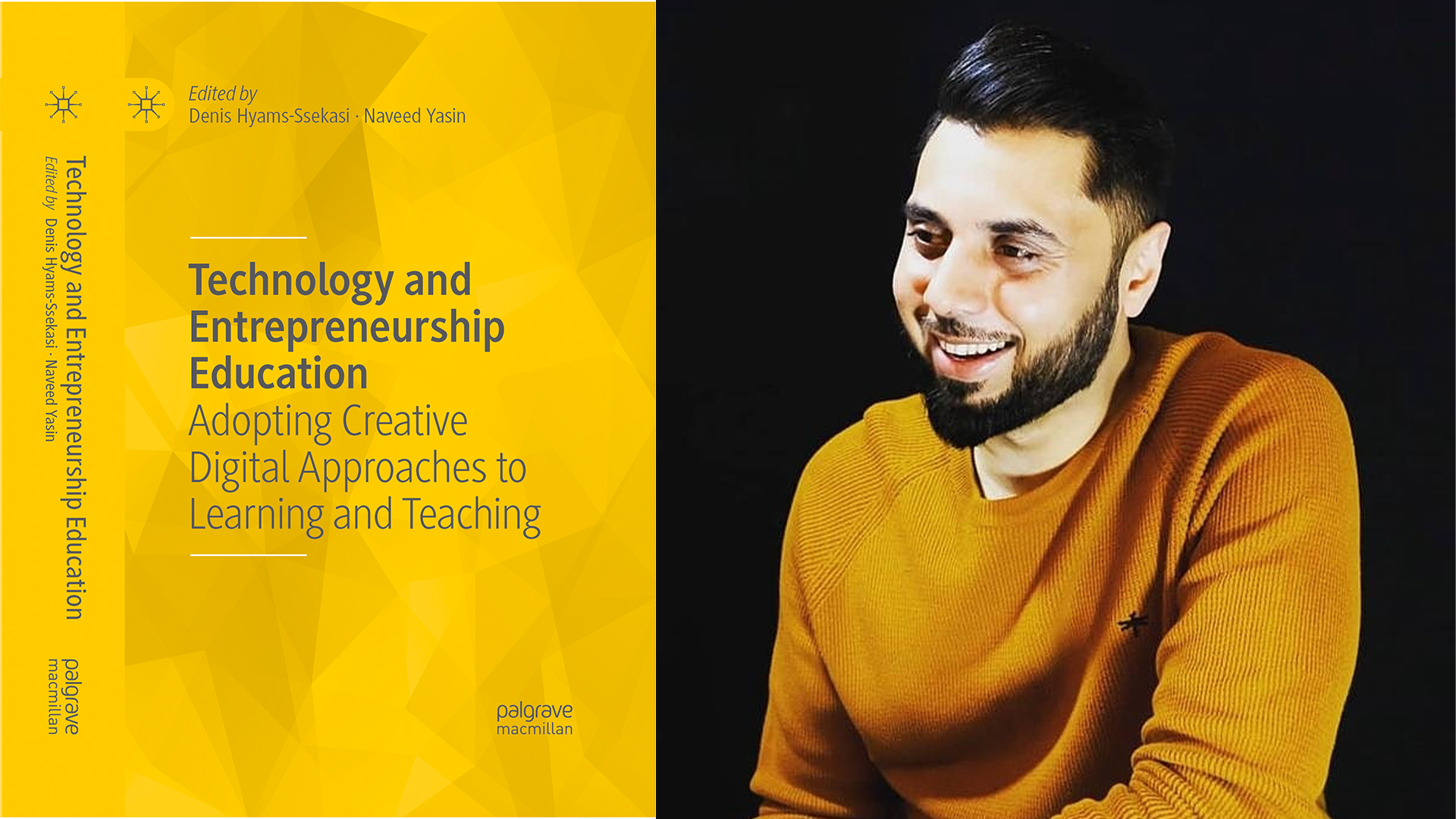Canadian University Dubai (CUD) Professor of Entrepreneurship, Dr. Naveed Yasin, has released a new book that aims to help bridge the gap between research and practice in the field of entrepreneurship education. The publication considers the impact of Covid-19 and digital models of teaching and learning, with the new opportunities provided during this period of change. It also offers insights on how creative, technology-driven approaches can convey entrepreneurial knowledge.
Edited by Prof. Yasin in collaboration with Dr. Denis Hyams-Ssekasi from the University of Bolton, UK, the book is entitled ‘Technology and Entrepreneurship Education: Adopting Creative Digital Approaches to Teaching and Learning’. Published by one of the top 5 academic publishers in the world, Palgrave Macmillan, it contains 11 chapters written by research teams from across the globe. Among the contributors are CUD business and engineering faculty, Dr. Davide Contu and Dr. Ahmed Al Gindy, who co-authored chapters with Prof. Yasin.
The book considers whether the current approaches used to convey entrepreneurial knowledge are adequate enough when preparing graduates for prospective careers. Through case-based studies, it explores digital approaches to learning that can be used to amplify student engagement when studying enterprise and entrepreneurship, such as simulation, gamification and artificial intelligence.
Speaking about the inspiration behind the book, Prof. Yasin said, “Fuelled by the increasing demand for innovative business start-ups, and the vast implications for blended learning approaches presented by the global pandemic, there is substantial need for the adoption of technology and the implementation of creative digital pedagogical practices to support the efficacy of entrepreneurship and enterprise education worldwide.
He continued, “The book aims to address this with distinct chapters that explore digitally-assisted teaching methods, to demonstrate that the adoption of simulations and game-based learning increases students’ comprehension, helps in the retention of knowledge, and provides an excellent way to introduce new content.”
Featuring contributions from academics in Australia, Europe, the Middle East and Asia, the book is relevant for researchers, instructors, and students with an interest in game-based approaches to enterprise education, as it encourages the practical application of entrepreneurial activity.
Prof. Yasin concluded, “With the substantial challenges caused by the global pandemic, this book is a vital resource at a time when blended learning is the new norm as a mode of instruction in higher education.”

